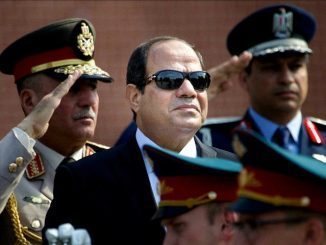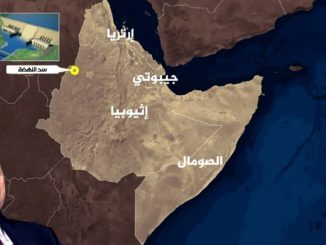
The Egyptian foreign minister’s visit to Jerusalem reflects a turning point in the Egyptian-Israeli relations as it is the first visit for an Egyptian official for nearly a decade.
Moreover, the Egyptian FM Sameh Shoukry doesn’t only break the nine-year stretch of no Egyptian foreign minister coming to Israel, it’s also important that the visit comes at the diplomatic level not on the intelligence level as it used to happen during Mubarak’s rule.
The Former-President Hosni Mubarak used to send the General Intelligence Service chairman Omar Suleiman to discuss military and intelligence cooperation and the peace process with the Palestinians, or to consult over policy vis-a-vis Hamas.
According to many observers and Israeli media, the decision to send the foreign minister shows a new level of ties closer to political normalization.
Egypt and Israel have common interests only some of which are security related. Security and intelligence cooperation doesn’t require discussions at the foreign-minister level.
Accordingly, the visit focuses on diplomatic issues rather than security issues, from the peace process with the Palestinians to Ethiopia’s controversial Renaissance Dam project.
At the press conference, Shoukry, a seasoned diplomat who was Egypt’s ambassador to the United States from 2008 to 2012, focused on the peace process and the reiterated that two state solutions were attainable.
It seems that al-Sisi has apparently decided to open a public political channel with Israel that could eventually result in a presidential invitation to the Israeli prime minister to visit Cairo.
In addition, one of the most crucial issues for Egypt’s national security, which lie on diplomacy, is the Grand Ethiopian Renaissance Dam that Ethiopia is building on the Nile.
The first part of the dam is expected to be completed next year, and Egypt says it stands to lose between 11 billion and 19 billion cubic meters of water annually. That will reduce Egypt’s electricity output by some 25 to 40%.
Egypt believes that it would rely on Israel because of its close relations with Ethiopia. Egypt seeks that even if it can’t prevent the building of the dam, it can at least persuade Ethiopia to coordinate water-sharing with Cairo so Egypt’s economy won’t suffer.
That might be one of the main reasons for the timing of Shoukry’s visit, as it comes directly after Netanyahu’s return from Africa, to hear whether he had any good news for the Egyptians. Egypt needs this information to prepare for the conference of Nile Valley foreign ministers on Thursday in Uganda.



